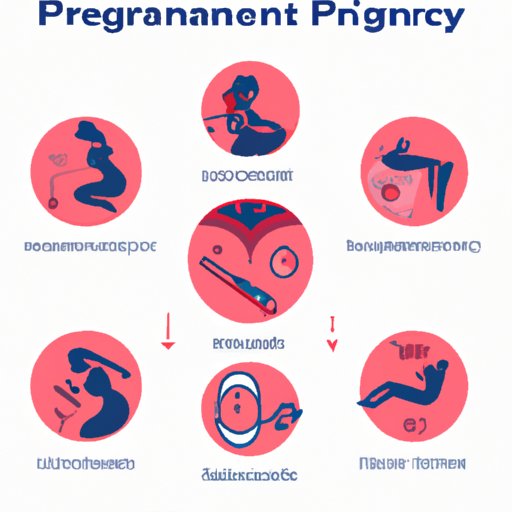
Can You Have a Period with an Ectopic Pregnancy?
For many women, experiencing a period is a monthly occurrence to be expected. However, there are times when menstruation can be disrupted or irregular. A disruption like this can create fear and raise questions, particularly when a woman has an ectopic pregnancy. If you find yourself in this situation, you may be asking: can you have a period with an ectopic pregnancy?
Understanding Ectopic Pregnancy: Can You Experience a Period?
Ectopic pregnancy occurs when the fertilized egg attaches outside of the uterus, often in one of the fallopian tubes. It is a serious medical condition that can have significant consequences if left untreated. Unfortunately, ectopic pregnancy is not that uncommon, occurring in about 2% of pregnancies.
When an ectopic pregnancy occurs, the early symptoms are similar to a typical pregnancy, such as breast tenderness, fatigue, and nausea. However, as the pregnancy develops, it can cause more concerning symptoms such as vaginal bleeding and intense abdominal pain.
The crucial question is whether a person can still have a period during an ectopic pregnancy. The answer is not clear-cut, but the short answer is yes, it is possible.
There are situations when a person may still have a period despite being pregnant. For example:
- A woman may have a short and light period when the fertilized egg implants in the uterine wall. This is known as implantation bleeding.
- In some cases, a person may have breakthrough bleeding, which can occur when you take hormonal birth control or other medications. Breakthrough bleeding mimics a menstrual period and can occur even when someone is pregnant.
An Ectopic Pregnancy: What Happens to Your Period?
An ectopic pregnancy can undoubtedly affect a person’s menstrual cycle. Understanding how it happens is essential to recognize the signs of an ectopic pregnancy to seek proper medical care.
When a woman is pregnant, the lining of the uterus thickens to nourish the growing embryo. If the fertilized egg implants somewhere other than the uterus, such as one of the fallopian tubes, that lining does not shed as it should during a monthly period. In most cases, this can lead to an absence of periods. Some women, however, may have some light bleeding or spotting, mistaking it for a period.
It is essential to note that a missed period is not necessarily a sign of an ectopic pregnancy. Several factors can cause the menstrual cycle to become irregular or to miss a period. These include stress, hormonal imbalances, changes to medication, weight gain, and weight loss.
Other changes you may notice in your menstrual cycle during an ectopic pregnancy include:
- Spotting, or very light bleeding.
- Unusually heavy bleeding, or bleeding that lasts longer than usual.
- Absent periods, especially for women who have been tracking their menstrual cycle regularly.
- Pain, which may be severe cramping, on one side of the abdomen, lower back, or shoulder.
The Link Between Ectopic Pregnancies and Your Menstrual Cycle
An ectopic pregnancy can be related to menstrual irregularity and difficulties. If left untreated, it can lead to more serious medical conditions and, in rare cases, death.
Early detection and treatment of an ectopic pregnancy are essential. If detected early enough, it can be treated without the need for surgery. Once you suspect an ectopic pregnancy, your healthcare provider will perform a pregnancy test to confirm it. Other tests, including an ultrasound or laparoscopy, may also be required to confirm the diagnosis.
Exploring the Relationship Between Ectopic Pregnancy and Irregular Menstruation
Irregular periods can be an indicator of something amiss. If you have missed your period or experienced any other menstrual irregularities, it is important to seek your healthcare provider’s advice.
An ectopic pregnancy can also cause period irregularities, including:
- Missed periods
- Heavy or longer periods than usual
- Spotting or bleeding between periods
- Periods that are entirely different from what you typically experience
Your healthcare provider can help by performing a pregnancy test, examining you to check the presence of pain, and performing an ultrasound to search for any abnormalities in your reproductive system.
Periods and Ectopic Pregnancies: What You Need to Know
As mentioned, ectopic pregnancies are severe; when left untreated, they can cause significant health consequences that can even lead to death. It’s crucial that if you experience any of the symptoms listed here, or any unusual changes to your menstrual cycle, that you seek medical attention right away. Early detection is essential to treating an ectopic pregnancy successfully.
There are several ways for treating an ectopic pregnancy, including methotrexate, laparoscopic surgery, or laparotomy. The best option for treatment depends on the age and weight of the patient, the severity of symptoms, and the decision of the healthcare provider.
Can You Still Get a Period During an Ectopic Pregnancy?
Yes, it is possible to have a period during an ectopic pregnancy. However, it is crucial to reiterate that an ectopic pregnancy is a severe medical condition that requires prompt attention for early detection and treatment.
If you experience any symptoms of ectopic pregnancy or any unusual changes to your menstrual cycle, such as missed periods, heavy bleeding, or severe cramping, contact your healthcare provider right away. Early detection and treatment can make a significant difference in your prognosis and ensure that you recover as quickly and safely as possible.
Conclusion
Periods and ectopic pregnancies can be difficult topics to discuss, but they are essential for good reproductive health. Understanding the risks and symptoms can help you notice changes to your body and seek medical attention as quickly as possible.
If you suspect an ectopic pregnancy or any other reproductive health issue, don’t hesitate to contact your healthcare provider. By staying up-to-date on your reproductive health and working with qualified healthcare professionals, you can ensure that you stay healthy and protect your fertility for years to come.





